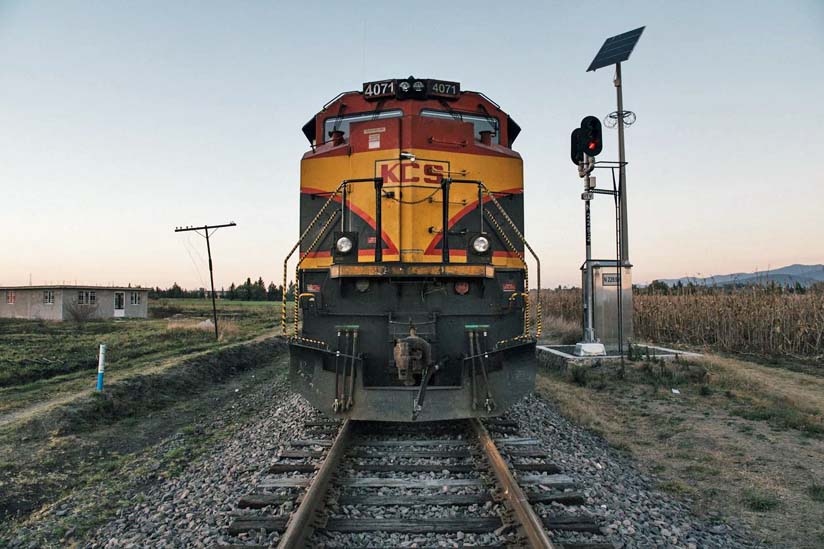
North America - The scrap between two Canadian railroads for Kansas City Southern (KCS) is getting ugly.
It could also get very expensive.
Canadian Pacific and Canadian National have released letters from stakeholders in support of their competing offers for the U.S. carrier or disparaging rival
bids.
CP, which moved first and agreed to pay US$25 billion, or US$275 a KCS share, called its domestic rival's higher bid inferior because it "creates adverse
competitive impacts."
CN, whose US$325 a share bid combining cash and stock was valued at US$33.7 billion when announced, but is worth somewhat less now, disagrees and has taken a
riskier tack.
CP asked for and received a waiver from more stringent rules enacted by the U.S. Surface Transportation Board (STB) in 2001 governing rail
mergers.
CN, which is larger, hasn't asked for a waiver and could face a longer, tougher, approval process potentially extending to the end of 2022.
The not-so-new rules have never been applied to a major merger.
Before either company's bid is approved, though, KCS would be taken over by a voting trust created by the winning bidder.
The U.S. railroad's shareholders would be paid regardless.
The combined company would still be one of the smallest Class 1 railroads in North America under either scenario, and would be the most expensive large rail
acquisition of the current era in terms of earnings multiple.
Taken at face value, both offers seem economically justified given the limited consolidation moves left on the table.
Railroads are natural monopolies that can't be replicated, and connecting Canada, Mexico, and the U.S. has serious value.
If CN is chosen by KCS's board, then it says it can extract at least US$1 billion a year in pretax synergies, and it probably would win business from truckers
and other railroads.
But it could face a significant financial hit if the deal later fails to gain approval, or even if significant concessions such as trackage rights or disposals
are required.
While the approval process drags on, it would own but not control the U.S. railroad.
If CN's application is rejected outright, the market value of KCS might drop back to around US$20 billion, its level prior to CP's bid.
That is some US$13 billion less than CN would have paid in cash and stock at its own shares' undisturbed price.
Then it would need the trust to sell KCS, which would be subject to the same review process, potentially taking especially long if the railroad is broken up
and sold in pieces.
For a company with a current market value of US$77 billion, that would be a substantial hit with no benefit other than keeping KCS out of its domestic rival's
hands.
CN shareholders shouldn't worry it is overpaying.
They should fret about it winning and failing to close the deal, though.
That could be a financial train wreck.
Spencer Jakab.
(because there was no image with original article)
(usually because it's been seen before)
provisions in Section 29 of the Canadian
Copyright Modernization Act.
